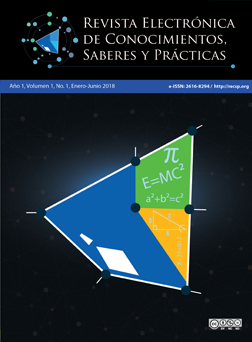Errores algebraicos en tareas de descomposición factorial por estudiantes universitarios de Nicaragua
Resumen
Esta investigación ha analizado los tipos de errores algebraicos, en tareas de descomposición factorial por estudiantes universitarios de Nicaragua. Se trata de un estudio cuantitativo, sustentado en cualitativo por su diseño descriptivo con la participación de 65 estudiantes universitarios de la Universidad Abierta en Línea de Nicaragua. El análisis se basa en la descripción, interpretación y categorización de las respuestas de los educandos. Los principales resultados muestran que los errores algebraicos son de carácter conceptual, procedimental u operacional, lo que se interpreta como un aprendizaje deficiente de las competencias de establecer relación coherente entre los tipos de descomposición factorial y su solución de acuerdo a sus propias características vinculadas a situaciones prácticas de la vida cotidiana. Se concluye, que un error es un conocimiento aprendido insatisfactoriamente y que se puede avanzar en la gestión, diseño e implementación de una comunidad de aprendizaje con incorporación de tecnología para disminuir errores en la resolución de tareas de descomposición factorial.
Descargas

Esta obra está bajo licencia internacional Creative Commons Reconocimiento-NoComercial-SinObrasDerivadas 4.0.



